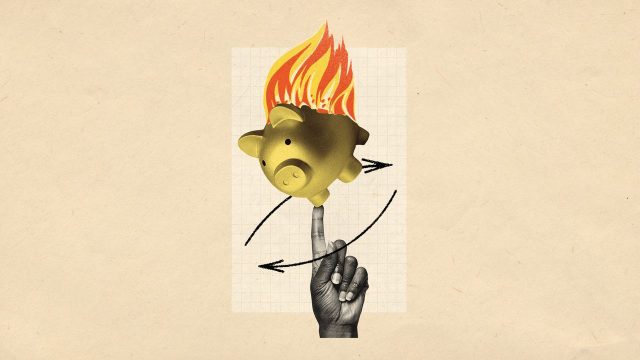
FIRE or financial independence, retire early, is a movement defined by extreme saving and frugality, whose participants expect to retire earlier than people traditionally do. While the idea likely sounds appealing, achieving it is far more difficult. Still, many are using a variety of methods to reduce their expenses.
Background
While the origin of the FIRE acronym is unknown, the concept was popularized in 1992 by the book “Your Money or Your Life” by Joe Dominguez and Vicki Robin. The book “encourages you to rethink your relationship with money so you can achieve financial independence and live a life that aligns with your goals and values,” said NerdWallet.
Since then, FIRE followers have hoped to “retire earlier than the conventional retirement age range of 65 to 70, or they may hope to gain greater financial independence,” said Investopedia. People who aim to retire in their 50s, 40s or even their 30s “may plan to live solely off small withdrawals from their portfolios, or they may incorporate part-time work into their strategy.”
There are also different types of FIRE. Lean FIRE is mostly for people who already lead minimalist lifestyles and “may save more than half of their income to achieve financial independence faster,” said NerdWallet. Those who want a more extravagant life after retirement may opt for Fat FIRE, which requires a “high salary and aggressive savings and investment strategies for it to work,” said Investopedia. Some people may not want to escape work entirely and choose to do Barista FIRE, a method in which individuals “save enough to cover some or most of their retirement expenses,” NerdWallet said. They “then draw on those investments to help fund their lifestyle while they work less or in a lower-paying job.”
The latest
Being able to retire early is a dream for many, but achieving it is not so easy. It “often requires cutting expenses to the bare minimum so you have more income to invest,” said NerdWallet. FIRE followers “could be saving 50% to 70% of their income or more, and that’s not possible for everyone.” The goal for many FIRE followers is to reach Coast FIRE, or the point when their “investments are large enough that they’ll grow to reach their FIRE number by their desired retirement date without saving another dollar.”
One way people have opted to reduce their expenses is through geoarbitrage. This strategy entails “moving to regions with a lower cost of living while continuing to earn income from higher-cost areas, allowing you to save more or enhance your quality of life,” said Moneywise. Geoarbitrage took off during the pandemic, as working from home became more normalized.
The reaction
In a time when society has embraced the “grind,” especially with the growing cost of living, it makes sense that many people would prefer to “embark on a super-saving path to ditch corporate drudgery ahead of schedule and retire on [their] terms,” said Insider. Unfortunately, the “aggressive savings rate may not be realistic for some people,” said Investopedia. “Especially those who are taking care of children or older parents.”
FIRE also “doesn’t solve your happiness problems,” Peter Adeney, who blogs under the name Mr. Money Mustache and retired at age 30, said to CBS News. You still have to “confront some demons and some emotional issues.”
Many are taking steps to retire early





